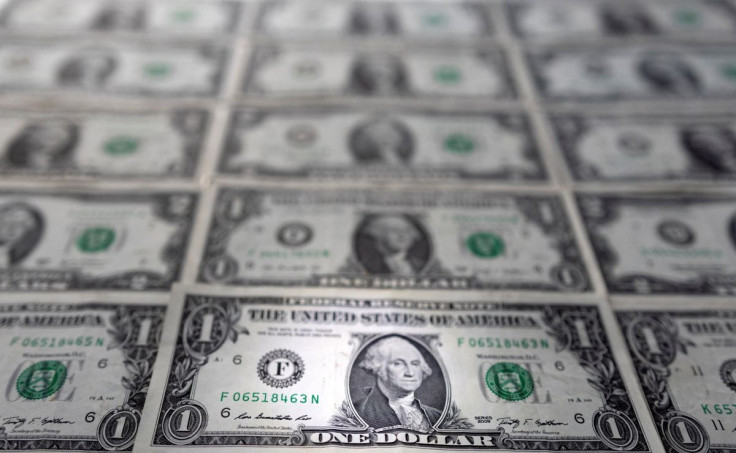Dollar Advances As U.S. Job Growth Tops Expectations

The U.S. dollar rose against a basket of currencies on Friday after a better-than-expected U.S. employment report pointed to a tight labor market that could keep the Federal Reserve on an aggressive path of interest rate hikes.
Nonfarm payrolls increased by 390,000 jobs last month, the Labor Department said in its closely watched employment report on Friday. Economists polled by Reuters had forecast payrolls increasing by 325,000 jobs in May.
The U.S. Dollar Currency Index, which tracks the greenback against six other major currencies, was 0.4% higher at 102.16 after rising as high as 102.22 following the jobs report. For the week, the index was up about 0.5%.
"We had a pretty solid nonfarm payrolls number," said Minh Trang, senior currency trader at Silicon Valley Bank in Santa Clara, California.
"The strong jobs data is supportive of the expectations of additional rate hikes going into the second half of the year," Trang added.
The Fed has raised interest rates by three quarters of a percentage point this year, and most Fed policymakers back raising interest rates another half of a percentage point at each of their next two meetings.
Cleveland Federal Reserve Bank President Loretta Mester said on Friday she is looking for "compelling" evidence that inflation has peaked before reducing the pace of the Fed's interest rate hikes from what policymakers say are likely to be half-point increments in both June and July.
Investors have mixed views on the greenback, which is still close to two-decade highs against a basket of peers.
George Saravelos, global head of forex research at Deutsche Bank, said the dollar is "pricing a safe-haven risk premium that is so extreme it rarely has persisted over time and is now in the process of unwinding."
Bullish analysts argue that the Fed's tightening cycle is based on a sturdier growth story than Europe's, especially after the Russian oil embargo, which might hurt the euro zone economy.
The dollar rose 0.8% to a more than three-week high of 130.85 yen, with the Japanese currency not far from the two-decade low touched in May as the Bank of Japan (BoJ) stuck to its super-low interest rate policy stance.
BoJ Governor Haruhiko Kuroda - who has said the bank will not roll back its massive monetary stimulus as the recent rise in inflation was driven mostly by raw commodity costs and likely temporary - said on Friday it was undesirable for prices to rise too much when household income growth remains weak.
"Everybody, including the ECB, talks about higher rates and so forth, but we are not seeing that sort of chatter when talking about the BOJ," Silicon Valley Bank's Trang said.
"I think that's why you have seen such an exaggerated move to the downside for the yen," Trang added.
In cryptocurrencies, bitcoin slipped 3.0% to $29,513.95, as the world's largest digital currency by market value continued to struggle to overcome a bout of selling pressure that has taken it below the $30,000 level.
© Copyright Thomson Reuters 2024. All rights reserved.







